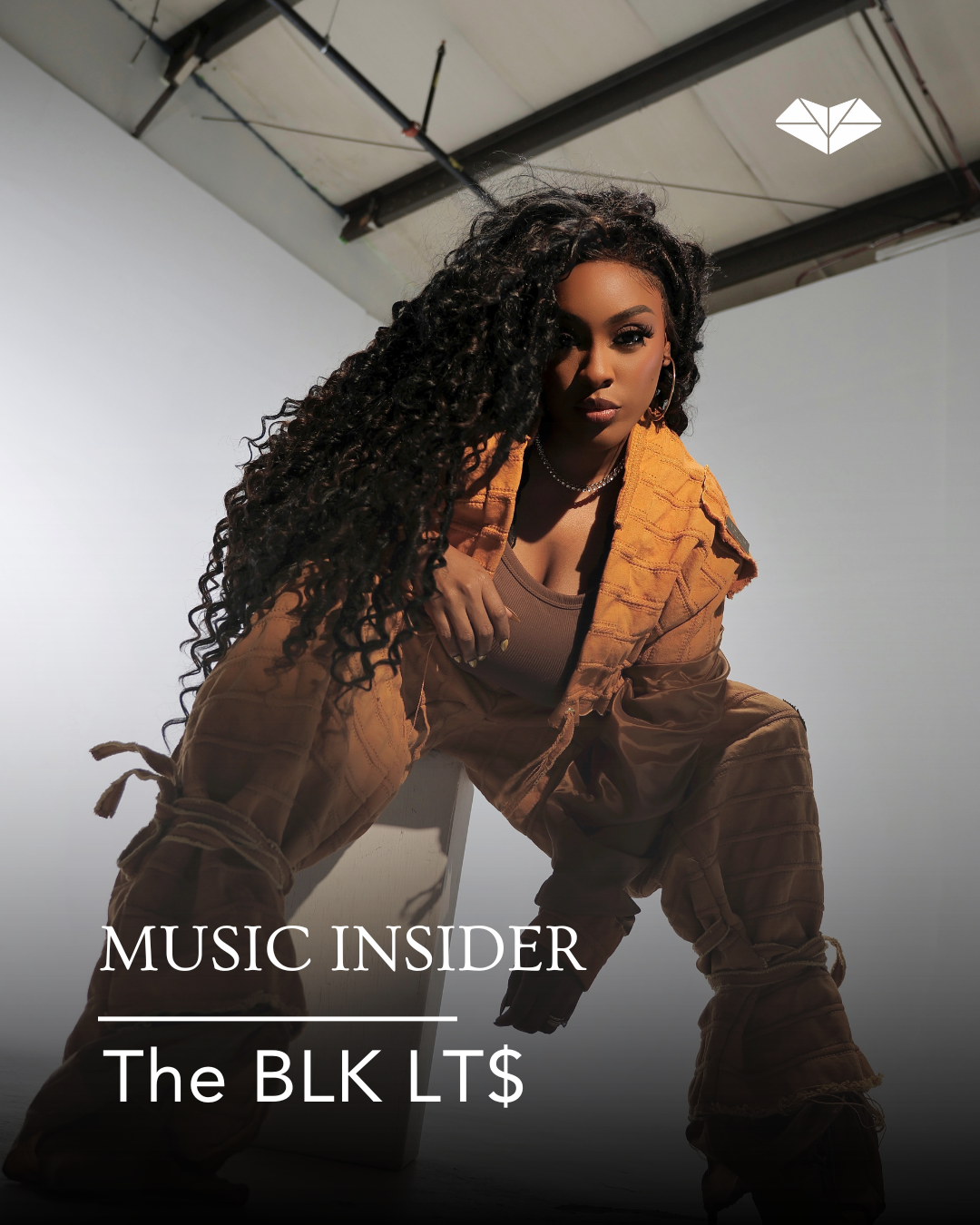The BLK LT$ is a Grammy-nominated engineer and artist described by Flaunt as “one of hip-hop’s secret weapons.” Her technical and creative fingerprints can be found across collaborations with Drake, Future, French Montana, Kodak Black, Saweetie, DMX, and more.
A rare female presence in hip-hop recording rooms, The BLK LT$ built her career through relentless self-education, locking herself away for weeks to master new gear and production techniques. That dedication eventually caught the attention of one of hip-hop’s most influential architects, RZA, who signed her to his 36 Chambers imprint.
Now stepping out from behind the console, she is preparing to release her forthcoming album Honey: The BLK LT$ Meets The Killa Beez (out now). The project marks a full-circle moment for her: as a seven-year-old, she copied Return to the 36 Chambers by ODB onto cassette and listened obsessively.
Now based in Atlanta, she continues to expand her creative universe producing for other artists, scoring documentaries, directing under her BLK LT$ Media Group imprint and releasing her own work through 36 Chambers.
How did you get your start in music?
My parents are true music lovers and used to play music all the time. They were both dancers on a disco TV show in Canada in the late ’70s, so music always filled our house. My father was also in a reggae band, and we used to hear them practice with so many amazing talents. That energy always made me feel something unlike anything else, and I knew music was the path I would take. I started playing piano at three years old, and it all grew from there.
Honey: The BLK LT$ Meets The Killa Beez is reimagining Wu-Tang classics you grew up on. What was the creative or emotional spark behind this project?
The emotional spark came during the COVID lockdown. The world felt so dark and uninspired, and I just wanted to create something fun to keep my mind off things. Once I started, it took on a life of its own. I’ve always been inspired by Wu-Tang and wanted to express how their music influenced me both lyrically and musically, something I hadn’t done with their sound before.
The Wu-Tang influence runs deep in your work. Beyond nostalgia, what lessons from that golden era of hip-hop still matter for new generations of artists?
I feel that raw, vulnerable expression is something hip-hop truly embodies, and I always want to apply that to what I create. There was a time in hip-hop when much of the focus was on materialistic or shallow themes, and not everyone can relate to that. I hope hip-hop continues to open up to real stories and genuine perspectives on life, ones that fans can truly connect with.
Working with artists like Drake, Future, and RZA puts you in some of the most competitive creative spaces in hip-hop. What are some of the top lessons you’ve learned?
Oh man, first and foremost, be yourself. Stick to the vision you have until you get your point across. These guys created molds that didn’t exist and that’s the wave I’m on. I try my best to bring my authentic self to the forefront every time I turn on my equipment.
Being one of the few women in hip-hop recording rooms, how have you navigated those dynamics and built confidence in your own sound and decisions?
Sometimes it’s hard, at the beginning, it was even harder, but I think being down to earth and showing my expertise has always helped people feel at ease when working with me, whether they’re men or women. Times have definitely changed over the years, and it’s funny because now, it’s often the men asking the women in the room if what they’re saying connects with them, since they’re creating for us, you know? Lol. I give them the edge they might be missing when it’s needed on a song.
You’re self-taught and spend weeks mastering gear and engineering techniques on your own. What would you say to young producers who feel overwhelmed by the technical side of music creation?
I say take it day by day and try to learn something new every day. Technology and techniques are expanding every year, especially with the rise of AI. It’s important to know the basics and master your own sound and craft, but there are now so many more platforms and people to learn from.
What's one piece of advice you wish someone had given you when you began?
Trust your gut!!! Especially in the beginning. When I started professionally around the age of 11, I had a lot of people in my ear, which is understandable, but there were times I knew what I wanted and got talked out of it, only to see a bigger artist do the same thing months later and have those same people call it amazing. I eventually learned the lesson, but it took a lot of growing pains to get there.
How important is it for artists today to understand production and engineering, even if they don’t plan to do it themselves?
I think it’s important for artists to have an understanding of music creation so they can clearly communicate their creative ideas to engineers or producers. When you can’t explain what you want, it takes so much longer to get there. Knowing the names of different effects or BPMs, or having references and influences ready, makes it easier for both parties to reach the final result smoothly.
3 things you can’t live without in your bag.
My Fenty lip gloss, hand lotion, and mini Gucci perfumes are always in my bag.



